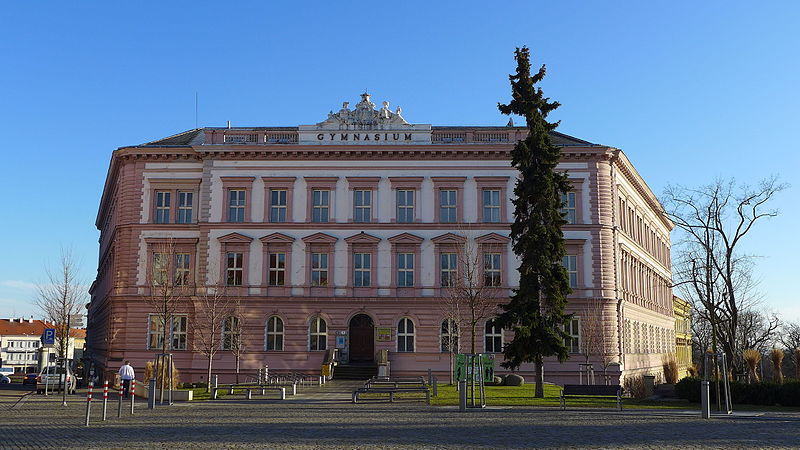Education in Czechia
From Wikipedia, the free encyclopedia
The Czech school system has four degrees:
- Preschools – (from 2 to 5 years old)
- Primary (elementary) – (from 6 to 15 years old, mandatory)
- Professional secondary (high) schools and grammar schools (gymnasium)
- Universities
Education in the Czechia is free, but there are some exceptions like preschools which are paid by parents, though the last year before entering elementary school is free. There is also a long-standing discussion about paying fees for attending university. However, as education is free, parents only pay for textbooks, basic equipment and food if their child eats in a school cafeteria. The state pays health insurance for students up to 26 years of age.
Primary schools
The primary (elementary) school (Czech: základní škola) consists of nine grades which are divided to two substages.
1st stage
The first stage contains first 5 years of education. The subjects taught at this stage are Czech, 1st foreign language (mostly English), Mathematics, Computer Science, Basics of History and Geography, Basics of Sciences, Arts, Music, Physical Education and Handworks.
2nd stage
The second stage contains years 6-9. Subject taught at this stage are Czech, Literature, 1st foreign language, 2nd foreign language (obligatory in years 8-9), Mathematics, Computer Science, History, Geography, Civical Science, Physics, Biology, Chemistry (obligatory in years 8-9), Music, Arts, Physical Education and Handworks (only in elementary schools).
Pupils can take their 2nd stage studies at elementary schools, at 8-years grammar school (osmileté gymnázium, generally orientated, physical education orientated) or at 6-years grammar school (šestileté gymnázium, generally orientated, physical education orientated, education in foreign language). Nowadays, most pupils continue at elementary schools. As for the grammar schools, 8-years grammar school is more popular as the 6-years version (almost not existing). In 6-years bilingual grammar school, the first two years (years 8 and 9), the pupils have intensive course of the foreign language (about 10 lessons per week), in years 10-13, the most subjects are taught in the foreign language.
Secondary education
After obligatory Elementary Schools, pupils can continue on higher type of schools that vary in number of years, in type of qualification and in possibility of university studies.
Professional high school lasts 4 years and students must take maturita exam. There is a huge variety of offered branches, mainly industrially oriented (such as technical chemistry or electrical engineering), but also oriented in agriculture, health service, IT or economy.
Grammar Schools are partly continuation of 8- and 6-years Grammar Schools and partly 4-years Grammar Schools for Elementary Schools leavers. 4-years Grammar Schools are generally or Physical Education oriented, but (as well as the 8 or 6-years type) the generally oriented schools can decide for a specialisation. The subjects are the same as in Elementary Schools, but are obligatory only in grade 10 and 11 (Mathematics also in grade 12, Czech and 2 foreign languages till grade 13). The schools can decide these subject to be obligatory also in 2 last years or the students to have more elective subjects than legally required minimum. Grammar school graduates have no qualification, the aim of this type of school is a preparation for university studies.

Grammar school (Gymnasium) in Znojmo
Maturita exam
Maturita exam is ending exam on 4-year secondary schools and is a requirement for university studies and higher professional schools. Maturita exams from all schools are equal and mean possibility to study in all types of universities.
Subjects of exam
Czech language and world literature contains 3 subexams:
- a. test of reading abilities and grammar
- b. writing
- c. oral exam from literature
2nd subject is to be chosen from foreign language (English, German, French, Spanish or Russian; reading, listening, writing and speaking exam of B1 level of CEFR) or mathematics (written test).





